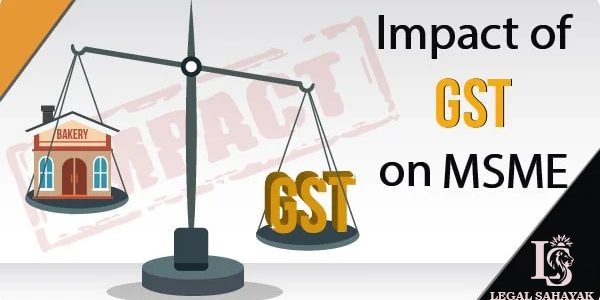Impact of GST on MSME
GST and MSME
GST (Goods and Services Tax) was introduced in the year 2017 on the month of June. GST registration is mandatory for all the businesses in India who lies under GST criteria. Implementation of GST has made a drastic change in the taxation system, some of the sectors have received a positive impact along with that few of them have received a negative impact, Here in this article we will see the impact of GST on MSME (Micro, Small and Medium Enterprises).
MSME are the backbone for the growth of our nation, we have more than 40 million MSME’s in India contributing almost 50\\\% of the industrial output and 42\\% of India’s total exports. These MEME registrations have made 110 million people employed and most of them self employed. Government of India is providing various schemes and benefits for such companies. The major benefit for MSME after implementation of GST is One taxation method, by which the MSME’s don’t have to pay various txxaxes and running for completing the documentation for several taxes in India.
Likewise, we will look after the Impact of GST on MSME in the article below.
Positive Impact of GST on MSME
- To save the time of MSME, the registration of GST is made Online by which the MSME owner can look after it’s business as well as complete the GST procedure within a short span of time.
- The refund can be done easily and also help to track the procedure.
- For any business, it was mandatory to make a VAT payment if the annual turnover is more than 5 lakh in a few states an 10 lakhs in a few other states. This difference in various states uses to create confusion. Under GST a business does not have to register or collect GST if the annual turnover is below 40 lakhs for the supplier of the goods and 20 lakhs for the supplier of services lakh. This is applicable to every state in India.
- Introduction of GST for MSME has reduced the time and money required for Interstate movement as their duties have eliminated.
- The Central Sales Tax (CST) on sales between states use to restrict small and medium businesses to reach their customers across India, which surges the purchase cost of products for the consumers. The implementation of GST has prevented all this.
- With the implementation of GST, the enterprises have to check their books regularly by which they can identify defaulters, ensure faster payments and streamline their ledgers.
- MSME’s can go beyond their geographical state and expand its business anywhere in India.
Negative Impact of GST on MSME
- Not all SMEs are able to use the internet for GST registration or they do not have technical expertise, by this they will have to involve a mediator for completing the registration procedure.
- Refunds can be claimed only after filing the relevant returns.
- GST will not be applicable to Alcohol/Liquor for human consumption and Petroleum based businesses, which creates a further gap and does not support the ‘unified market’ ideology of GST.
- There are different slabs of rates under GST, the GST rate slabs are 0%, 5%, 12%, 18%, and 28%.
GST works as a helping hand for the growth of the MSME sector and it will surely transform the way enterprises operate and do business. We hope that in the future, it will make a positive impact on the economic growth of our country.







